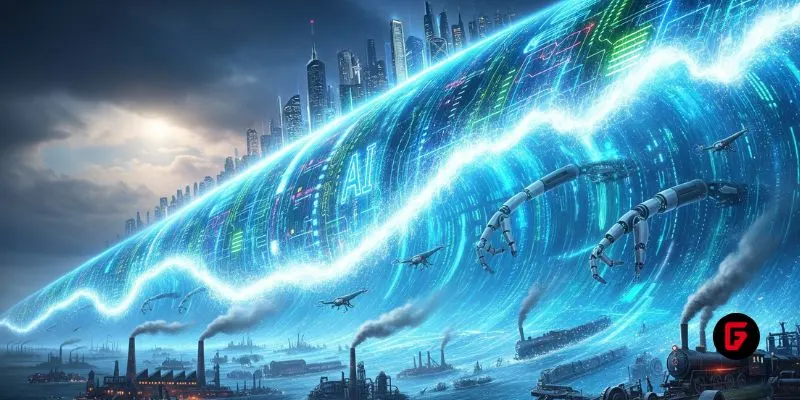The Artificial Intelligence revolution is no longer just hype—it’s on the brink of upending society at a speed and scale that will make the Industrial Revolution look glacial. At the center of this whirlwind is Demis Hassabis, CEO and co-founder of Google DeepMind, whose recent remarks have set the technology world buzzing. Let’s break down why the AI era isn’t just another incremental update, but a true leap toward a radically new future.
AI: Surpassing Muscle, Empowering Mind
Imagine what happened during the Industrial Revolution: machines began replacing human muscle. Steam engines, railroads, and factories scaled productivity, forever transforming the economy and daily life. But Demis Hassabis argues that today, the game has changed—AI is augmenting and rapidly overtaking human cognition itself.
While it took over a hundred years for industrialization to spread worldwide, AI improvements are rolling out so fast that experts believe we could see the equivalent of a century’s worth of change in just ten years. That’s a seismic jolt that no previous generation has faced, and society must be ready.
Economic Transformation: The Shape of Work to Come
Will robots and software steal our jobs? Not exactly. Hassabis argues that AI will drive “incredible productivity” and “radical abundance”, rather than simple job losses. Already, studies estimate that AI can automate about one-fourth of existing work tasks—especially those heavy on repetitive data crunching and analysis.
But here’s the twist: most jobs won’t disappear. Instead, they’ll evolve. Routine tasks handled by AI will free up humans for roles that demand creativity, nuanced decision-making, and emotional intelligence. For forward-thinking professionals, artificial intelligence (AI) is a friend—not a foe. The next decade will breed entirely new job categories for those adaptable and curious enough to master these new AI tools.
Healthcare: AI’s Double-Edged Scalpel
Hassabis draws a sharp line between medical roles. Doctors, particularly those focused on diagnostics, may find their expertise rivaled—or even surpassed—by AI. Machine learning models can already examine scans and test results faster, and sometimes more accurately, than many practitioners.
Yet, no matter how sophisticated an algorithm gets, it can’t console a frightened patient or provide the comfort of a steady hand. That’s why nursing and caregiving remain irreplaceable. These roles are rooted in empathy, communication, and human touch—qualities AI can’t mimic.
Artificial General Intelligence: Closer Than We Think
Both Hassabis and Sergey Brin (Google co-founder) have publicly speculated that Artificial General Intelligence (AGI)—that next leap when machines match or surpass all aspects of human intelligence—could become reality by 2030. If realized, this will mean not just smarter software, but a true partner in innovation, creativity, and possibly even policymaking.
With this new frontier comes serious responsibility. Hassabis stresses the need for international cooperation, calling for nations and tech leaders to set shared safety guidelines and policies. The global race for AI dominance, he warns, must not come at the expense of ethical safeguards.
Embracing the Future with Eyes Wide Open
We stand at the edge of a new era. The AI revolution will rewrite the rules of work, redefine professions, and challenge what it means to be human in a world where thinking machines are commonplace.
It’s no longer a matter of if, but how well we adapt. Those who embrace lifelong learning, develop uniquely human skills, and collaborate with intelligent machines will thrive in this bold new world.
The next ten years will be turbulent—and exhilarating—for anyone with the vision to see the possibilities.
Stay curious. The future is arriving faster than any of us expect.














